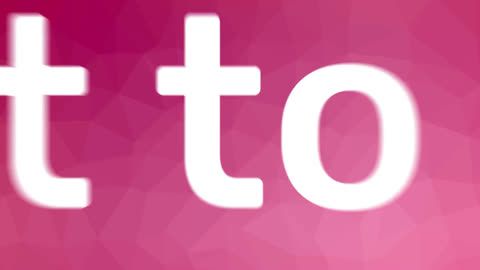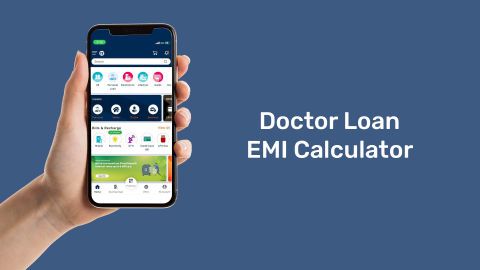DNB course details
The DNB in Medical is a 3-year postgraduate program, equivalent to MD/MS or postdoctoral courses. It focuses on enhancing medical professionals' skills and knowledge to help them succeed in the healthcare industry. The course opens multiple opportunities for professional growth and employment across sectors like hospitals, research labs, and government organizations, including roles aligned with primary health care services.
Here’s a detailed look at the key points related to the DNB Medical course:
Particulars
|
Details
|
DNB Full Form in Medical
|
Diplomate of National Board
|
Course Level
|
Postgraduate (PG)
|
Course Duration
|
3 years
|
DNB Fees
|
Up to INR 1.1 lakh
|
Admission Process
|
Entrance-Based
|
Eligibility Criteria
|
Must have passed MBBS
|
Entrance Exam
|
NEET PG
|
Average Salary After DNB
|
Up to INR 35 LPA
|
Top Recruiters
|
Intelligence Bureau (IB), Central Bureau of Investigation (CBI), Hospitals, Police Departments, Law Firms, Defence/Army, Central Government, Forensic Labs, Private Detective Agencies
|
Job Roles
|
Forensic Experts, Investigative Officers, Crime Reporters, Crime Scene Investigators, Forensic Scientists, Handwriting Experts, Fingerprint Experts, etc.
|
Why study the DNB course?
Choosing DNB has several benefits:
- Quality training: Comparable to MD/MS programs
- Broad recognition: Accepted across India
- Availability: Wide availability of seats
- Career opportunities: Opens several paths in the private and government sectors
- Research focus: Emphasises research and advances in medical science, along with awareness of compliance standards such as HIPAA in healthcare data management.
Financing medical education is now easier with more competitive doctor loan interest rate options available specifically for healthcare professionals.
Eligibility criteria for Diplomate of National Board (DNB)
To enrol in the DNB program, candidates must:
- Hold an MBBS degree from a recognised institution
- Complete a one-year internship
- Clear the Common Entrance Test (CET)
- Obtain a permanent registration certificate from MCI or State Medical Council
Medical graduates aiming to pursue DNB can also explore doctor loan eligibility options to fund their postgraduate education without financial stress, while understanding allied healthcare roles such as what is medical coder for broader industry insight.
DNB course structure
The DNB course is structured as follows:
- First year: Basics of medical sciences and core subjects
- Second year: Advanced training in a chosen speciality
- Third year: Intensive clinical practice, thesis submission, and final exams
DNB admission process
Admission to the DNB course involves:
- CET examination: Clearing the entrance exam is mandatory
- Counselling: Based on ranking in the CET
- College allotment: Seats are allotted through counselling
- Document verification: Submission of required documents followed by admission confirmation
Prepare for a DNB entrance exam
To ace the CET for DNB:
- Understand the syllabus: Get a clear understanding of the exam pattern
- Study regularly: Consistent study habits
- Practice papers: Solve previous year papers and mock tests
- Conceptual clarity: Focus on concept-based learning
What to choose as a career: DNB, MD, or MS?
Deciding between DNB, MD, and MS depends on:
- Training quality: DNB offers training similar to MD/MS
- Recognition: Both DNB and MD are recognised equally for most purposes
- Career goals: Consider your career aspirations and the specific requirements
Difference between MD/MS and DNB
The MD/MS and DNB programs differ in several ways, including the availability of seats, fee structure, course duration, recognition, career opportunities, and scope of practice.
Factor
|
MD/MS
|
DNB
|
Seats
|
There are fewer seats available in MD/MS programs due to the limited capacity in affiliated medical colleges.
|
DNB offers a larger number of seats in various accredited hospitals, providing more opportunities for candidates.
|
Fees
|
MD/MS programs are expensive, with high tuition fees and additional costs in established medical colleges.
|
DNB is more affordable compared to MD/MS, making it an appealing option for many aspiring specialists.
|
Tenure
|
Both MD and MS programs typically take 3 years to complete, with some super-specializations requiring extra years.
|
DNB also generally takes 3 years, although the duration may vary slightly based on the specialty and institution.
|
Acceptance
|
Recognized by the National Medical Commission (NMC) and many institutions worldwide.
|
DNB is recognised by the NMC and is considered equivalent to MD/MS, earning respect and acceptance in clinical practice and academia.
|
Scope
|
MD/MS offers a wide range of specializations and the possibility of pursuing super-specializations after completion. The scope is broad in both clinical and academic fields.
|
DNB provides extensive clinical exposure and opportunities for super-specialization. DNB graduates are well-equipped for real-world practice and have an equivalent scope to MD/MS graduates in many areas.
|
Conclusion
Deciding on your medical career path is crucial. DNB offers a robust and recognised avenue for postgraduate medical training. For those looking for a doctor loan or a professional loan to pursue higher education in this field, the one offered by Bajaj Finance can be a great financing solution.






